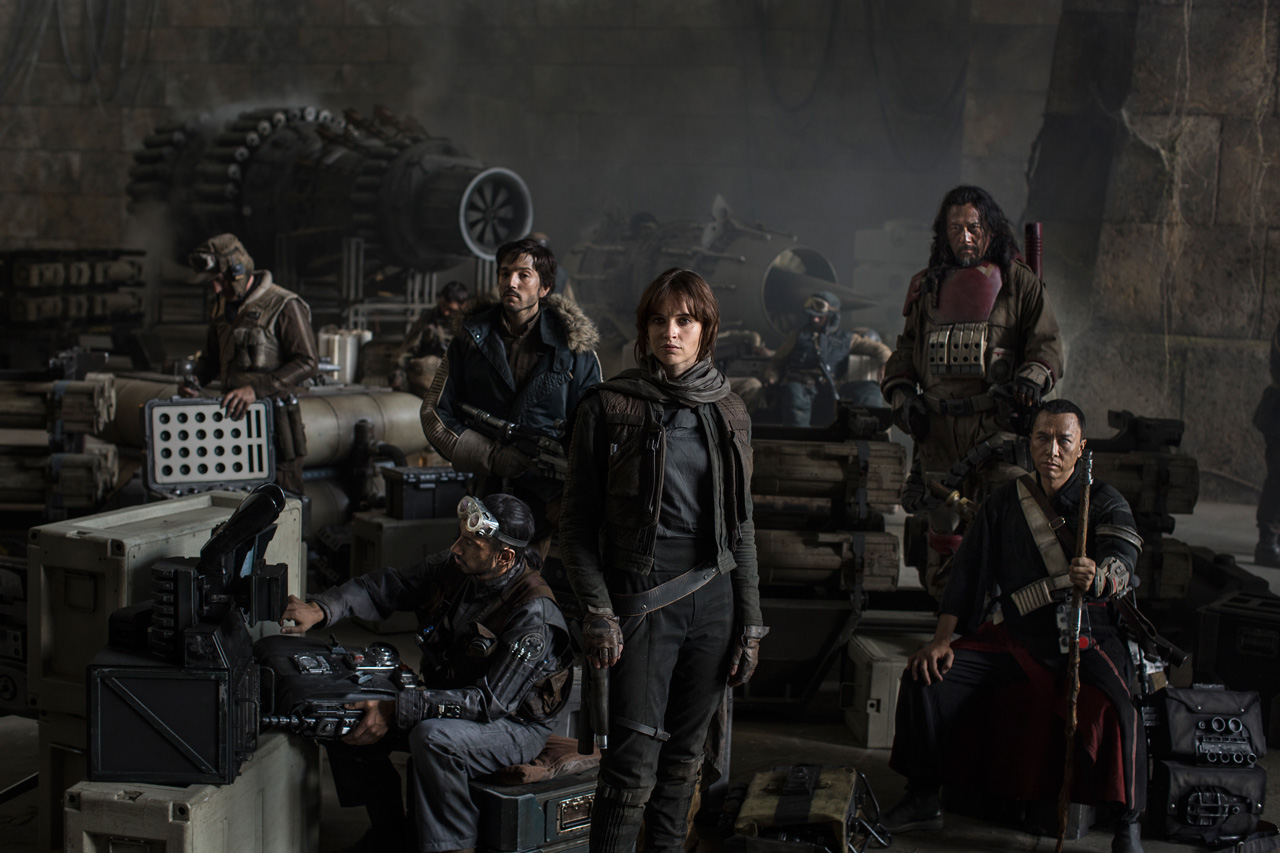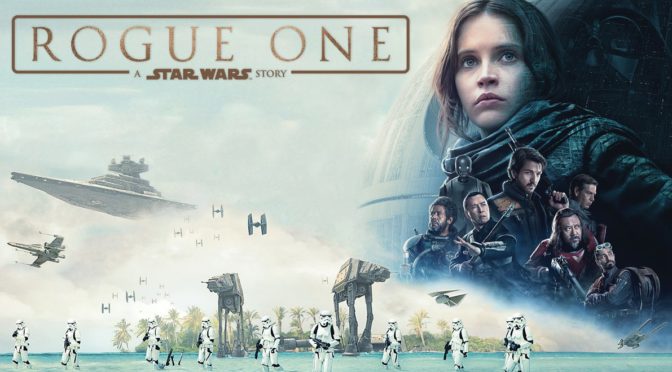Coming off of the major success of Star Wars: The Force Awakens, Disney followed through with their plan to release spinoffs that would feature new characters and viewpoints within the Star Wars universe. The first of these films is Rogue One: A Star Wars Story, directed by Gareth Edwards (Godzilla). Set prior to the events of the original 1977 film, the plot centers on Jyn Erso (Felicity Jones; The Theory of Everything), the daughter of the architect of the Death Star, who has been captured by rebel forces to help them find a way to destroy the superweapon.
A prequel always creates the urge to heavily reference the existing films, but Rogue One is able to avoid many of those mistakes. When developing the prequel trilogy, series creator George Lucas was unable to resist this temptation. He wrote characters that were either younger versions of existing characters or new ones that were basically stand-ins for those you already knew. The key difference here is that Rogue One answers one of the franchise’s lingering questions: why was there a spot on the Death Star that would immediately destroy it? This necessitates the film to focus on an entirely new cast in a very different situation.
Edwards deliberately separates his film from the mainline entries. Each production detail is selected to contrast with what we expect from the franchise. Camera movements are often shaky and focus on the perspective of the ground troops rather than sweeping shots of the greater battle area. The final action scene has moments that mimic the Normandy Invasion scene from Saving Private Ryan. The lighting also reflects the clandestine nature of the characters. Many rooms are poorly lit, implying these rebels don’t have the money or the time to stay in any location and build a base. Even the normally pristine Stormtroopers are speckled with debris. Everything feels grimy with an air of desperation.

The screenwriters are able break away from traditional formula of the franchise. Previous films focused on the Jedi which made morality simple. There was no question of who to root for when it was the monks versus space fascists, but Rogue One takes a different approach. The rebels fighting here are not waging a war of ideologies, they are the people that need to make the hard decisions to win battles. That means lying and killing if it moves their position forward. The added complexity is refreshing in the otherwise simplistic universe, but, perhaps fearing public reaction, this is relegated to the periphery. The film instead chooses to focus on the action rather than the choices behind it. Exploring this ambiguity would have further distinguished the film and balanced out the pacing that drags early on from the repeated action sequences.
The filmmakers take full advantage of the freedom that not needing the set up future installments affords them. The major downside to the franchises that dominate cinemas today is that they lack tension. Even as characters are shown in perilous situations, it doesn’t produce the intended effect. Why should we be worried when we know that sequels are already in the pipeline? Captain America and Iron Man can’t kill each other when the next Avengers movie is just around the corner, so their battles don’t have any meaning. That is not the case for this spinoff. Characters are expendable and the writers aren’t afraid to prove it. The new perspective and narrative turns make Rogue One an exciting change to the standard Star Wars tropes.

4/5 stars.
